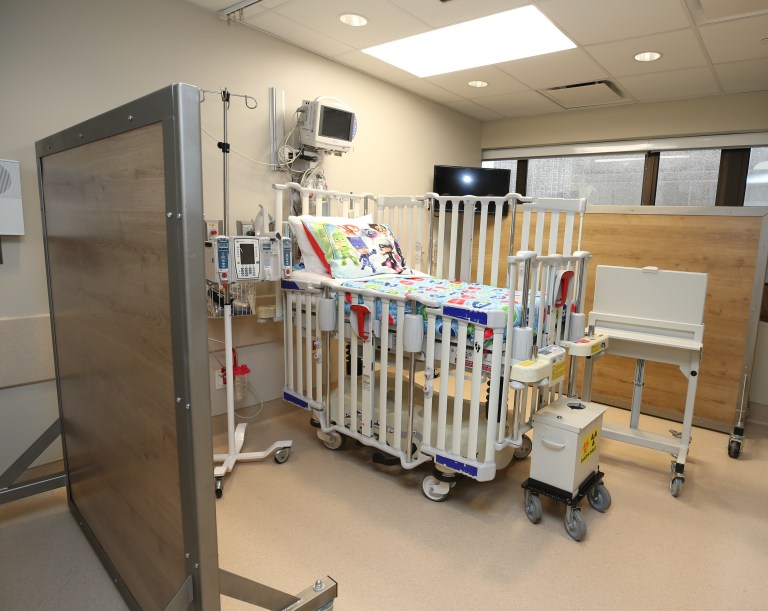
They may not be turning into superheroes, but pediatric cancer patients at Cohen Children’s Medical Center will become radioactive based on a new treatment the hospital is offering, said Dr. Jonathan Fish
“You’re injecting the patient with a radioactive substance that then makes the patient emit radiation,” Fish, a pediatric oncologist/hematologist at Cohen, said in a Northwell Health release.
The treatment uses a compound, metaiodobenzylguanidine, which contains radioactive iodine that is delivered intravenously to destroy neuroblastoma cells, according to the release.
Neuroblastoma is an aggressive childhood cancer that arises from the sympathetic nervous system.
One of the most common places to develop neuroblastoma is in the adrenal glands that sit “like a hat on top of the kidneys,” Fish said.
The treatment differs from conventional radiation therapy for cancer, Fish said.
Conventional therapy involves creating a high-energy radiation beam that targets the cancer, but a patient does not become radioactive, Fish said.
This option is used when neuroblastoma patients have relapses or don’t respond to conventional treatments, such as chemotherapy, which typically cure between 50 and 60 percent of patients, according to the release.
“In the context of a child who has high-risk neuroblastoma that has relapsed or is unresponsive, then the MIBG can extend a high-quality of life for months or years,” Fish said.
Fish said researchers are close to incorporating high-dose metaiodobenzylguanidine as part of first-line treatment for newly diagnosed patients
Cohen is currently one of only a handful of hospitals across the country, and one of the only in the tri-state area, to offer the treatment, according to the release.
Cohen invested upward of $1 million to begin offering the treatment.
Part of the funding came from fundraising efforts by the Kostaris family of Queens, who lost their daughter Anastasia to neuroblastoma.
Anastasia was diagnosed with stage four high-risk neuroblastoma two days before her first birthday.
She received five rounds of chemotherapy at Cohen between December 2014 and February 2015.
The Kostaris family then travelled to Children’s Hospital of Philadelphia for the metaiodobenzylguanidine therapy.
Unfortunately, Anastasia’s cancer never went into remission and by mid-May the family received news that her tumors had re-emerged.
The Kostaris family founded Anastasia‘s Legacy to raise money for the creation of the program at Cohen.
The money helped Cohen get specialized equipment, staff training and customized lead-walled treatment room to project patients in adjacent rooms and staff from radiation exposure.
The administration of the metaiodobenzylguanidine is done in one dose and takes only a few minutes.
The patient then remains in the treatment room between three and seven days until they are at a safe radiation level to be in contact with others.
Parents can visit their child in the room, but they must stay behind a lead shield and wear a monitor to track their radiation exposure.
There is also an adjoining anteroom with a two-way audio and visual communication for parents to interact with their child.






